Critical thinking for more sustainable communities
Keywords: sustainability education, planetary boundaries, climate change, biodiversity, sustainable consumption, participation, cooperation
Subject and objectives of the project
The German-Polish cooperation project between the German Society for Environmental Education (DGU) and the Fundacja Centrum Edukacji Obywatelskiej (CEO) aims to anchor reflection on the current and future global challenges of sustainable development in the learning and teaching of students and to promote commitment to a more sustainable world through the development of critical thinking skills and new narratives among students aged 13 and over (secondary school) and teachers.
The objectives of the project include the development and testing of innovative training and learning opportunities on sustainability challenges in areas such as climate change, biodiversity conservation, consumption and nutrition. The focus here is on promoting skills in the context of teaching processes and in the area of everyday action. The aim is to enable pupils to actively shape sustainable development. With regard to teachers, the focus is particularly on interactive and participatory methods and activities for dealing with content in the school context. The teachers will prepare the pupils for the central activity in the project – concrete youth actions – through lessons based on the educational materials developed and through other specific tasks. The teachers will act as helpers and supporters in the youth projects after further training, but it is the students who decide on the respective sustainability topic, the project goals and the form of the actions and concrete projects. To ensure the quality of the youth projects, the groups are offered support, e.g. in the form of guidance from a mentor. As a result, the groups accompanied by teachers will plan and implement at least 50 youth projects on climate change and sustainability for their schools and/or communities (e.g. new, climate-neutral menus in school canteens, energy audits, repair cafés, more natural outdoor design of school grounds, etc.).
Work steps and results:
- Development, testing and dissemination of 25 programs along with educational materials in collaboration with teachers and subject didactic experts
The materials will be used as support in blended learning courses and serve different objectives of the project process: a) for subject teaching by referring to the specific points in the curricula (short exercises, lesson plans), b) for formative education / teaching (short exercises, lesson plans, tools for self-reflection), c) for the preparation and implementation of youth actions (infographics, suggestions for outdoor activities, content plans for student group meetings). To ensure the quality of the materials, the drafts are tested by the members of the working group in their schools. The feedback from these tests will be incorporated by the authors into the final versions of the materials. All 25 programs with materials and the publication on the sustainability framework of the entire educational program will be posted in electronic form on the CEO website. - Development, testing and implementation of new blended learning courses (basic and advanced course) for teachers (further training)
Teachers take part in the course to learn how to prepare and implement concrete projects together with young people in schools or communities. For both blended learning courses, guidelines will be developed and, after being tested twice with teachers (basic and advanced course, 6 modules each) with introductory and concluding online workshops, face-to-face workshops, mentoring for course participants and online seminars of the Global Club (the Global Club for teachers is a series of online meetings aimed at global challenges, sustainability and transformative education), evaluated and optimized in cooperation with a group of experts. The courses will be available on CEO’s e-learning platform. A total of 100 teachers will be trained in the basic course and 80 teachers in the advanced course. A total of 180 teachers will be actively involved in the development and testing of new training courses and 100 teachers will be actively involved in the project in the form of the Global Club. - Preparation and implementation of activities for young people and youth projects
Teachers participating in the course work with students in their schools to plan and implement youth projects. This involves building partnerships with local institutions and organizations, organizing online workshops for interested groups and offering online mentoring from experts in youth and student formats. As a result, the teacher-led student groups will implement 50 youth actions / concrete projects on climate change and sustainability. As accompanying activities, two online festivals and two five-day youth sustainability camps for students as well as two one-day national conferences for students and teachers will be implemented. To strengthen the participation of young people, an online learning game on the topic of sustainability will be developed and produced. The best youth projects will be presented in the project video.
Innovation and exemplary nature of the project
The project focuses on a new methodological approach to developing and strengthening awareness of sustainability in the formal education sector. It promotes an understanding of the UN Sustainable Development Goals (SDGs) and the importance of practical solutions in which the students themselves have participated.
While “global education” can be considered quite popular and established in schools in Poland, the approaches that involve deepening critical reflection, opening the field to new narratives and searching for more complex and bold solutions for building a more sustainable world (transformative education) can still be considered a novelty. The new educational offer targets the formal education system and provides a complete package of tools and activities. In particular, the new approach aims at the participation of young people in changing their environment at school and/or in the local community.
Innovations are also understood to be projects that young people prepare and implement for and with their communities. These can be innovations that affect school operations (a new vegetarian menu in the school canteen, an energy audit, repair cafés, outdoor lessons in green spaces) or innovations in the municipalities (proposals for the city administration to improve public transport, more sustainable energy consumption, water conservation, etc.).
The project focuses on creating a balance between the “learning” and “doing” components in all activities. Project-based learning is implemented and promoted as part of the project. In addition, the method of “good dialog” is developed to discuss important but difficult (also global) challenges at school in a safe and creative atmosphere. This is a methodical ESD approach that is to be used more frequently in schools in the future in order to promote the willingness to help shape sustainability in the school and local environment. The most tangible and exemplary innovations and school practices will be collected in a database and publicized in the schools.
Special aspects of the project
The DGU will provide advice and support within the framework of the project with its network of “Eco-Schools in Europe” and the topics dealt with there: developed concepts and learning materials will be evaluated over the entire duration of the project and contacts between Polish and German schools will be established. The international network of Eco-Schools National Operators is also used for this project and partner schools are identified and involved in the project with the help of the Polish network of Eco-Schools there.
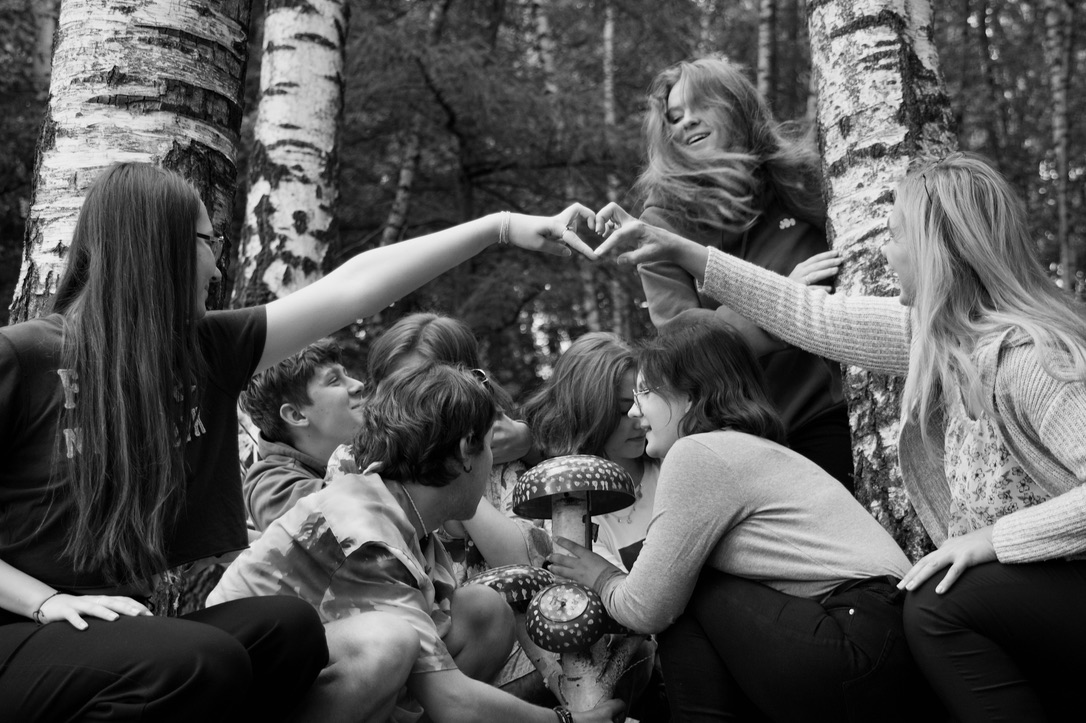
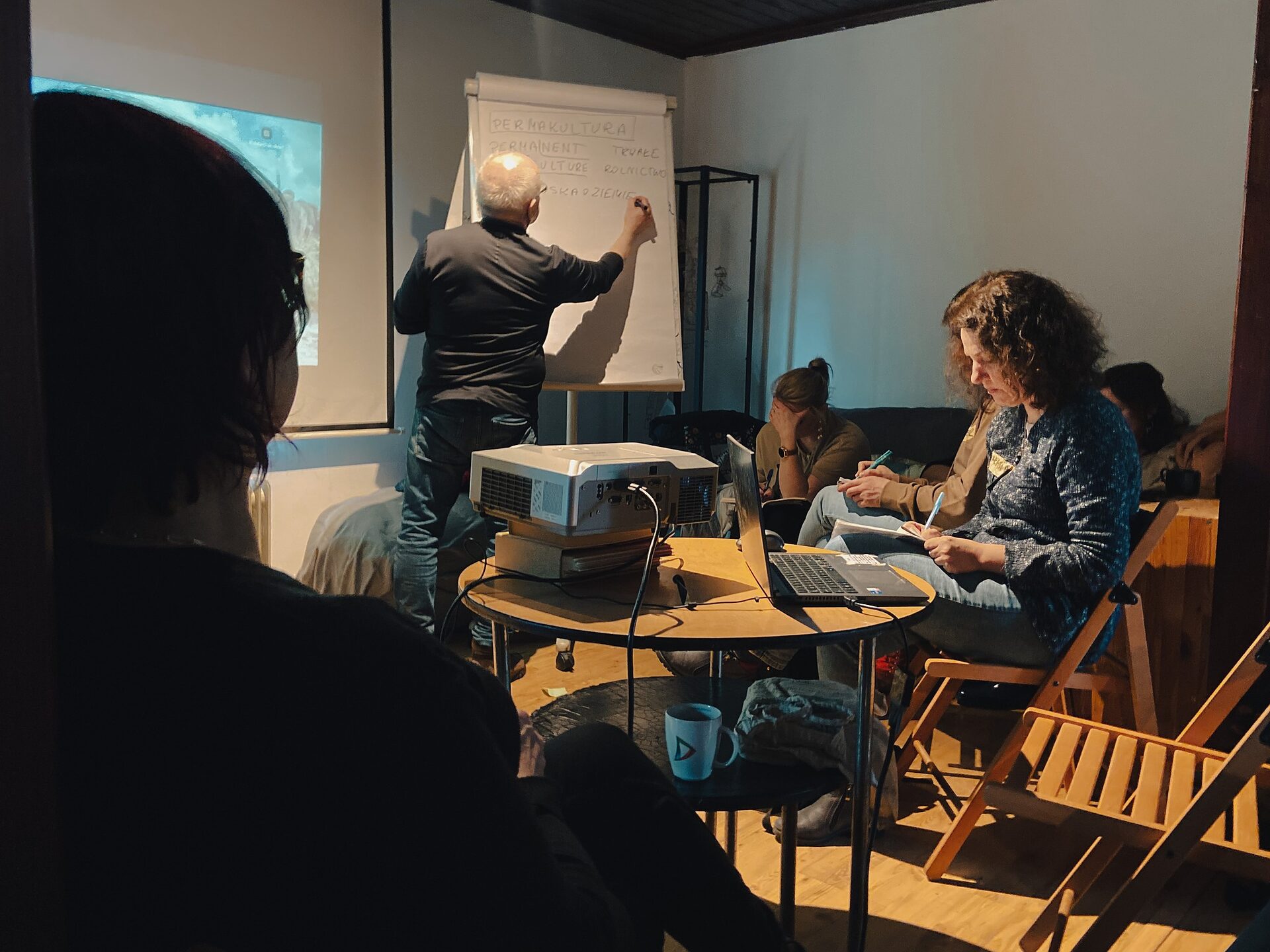
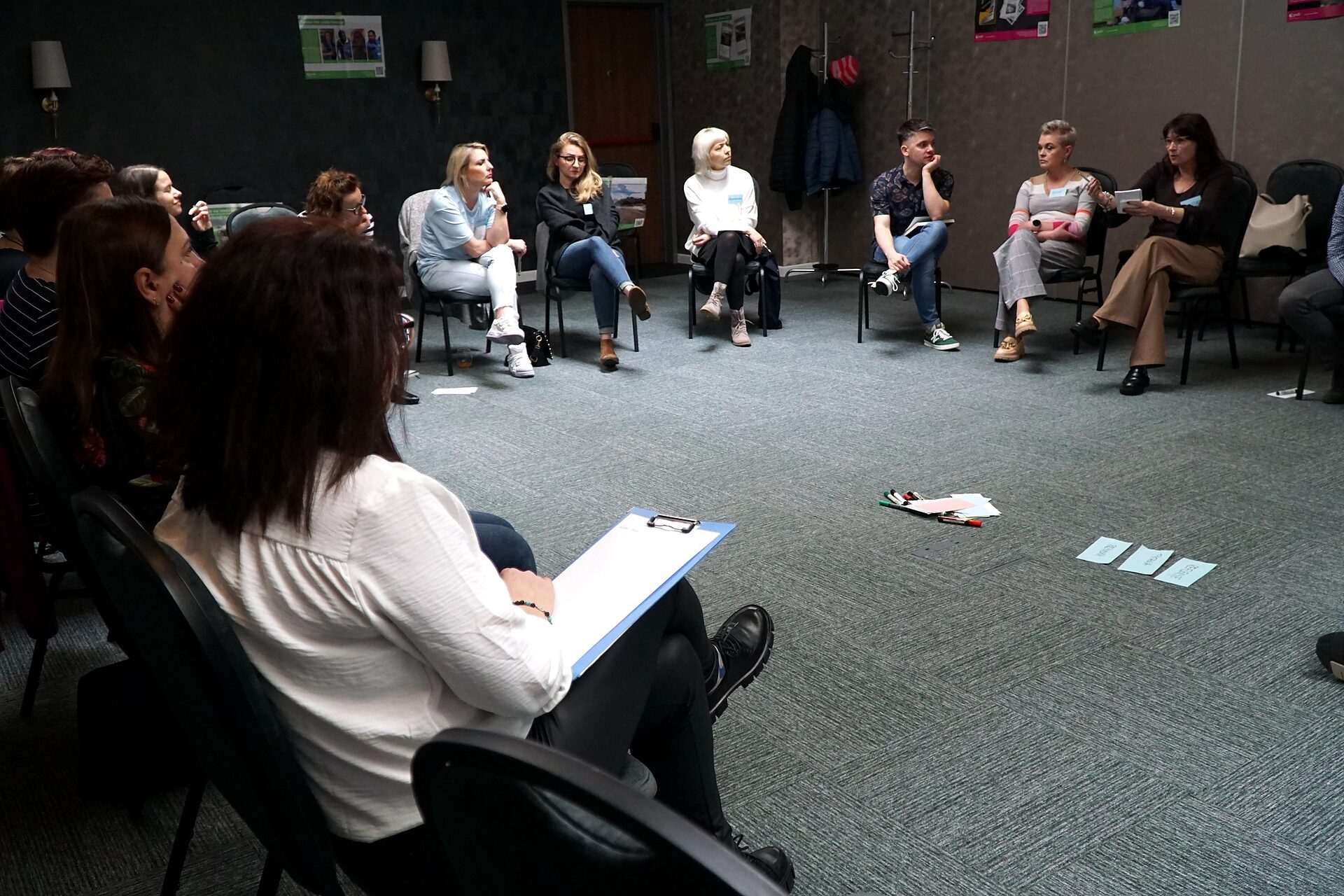
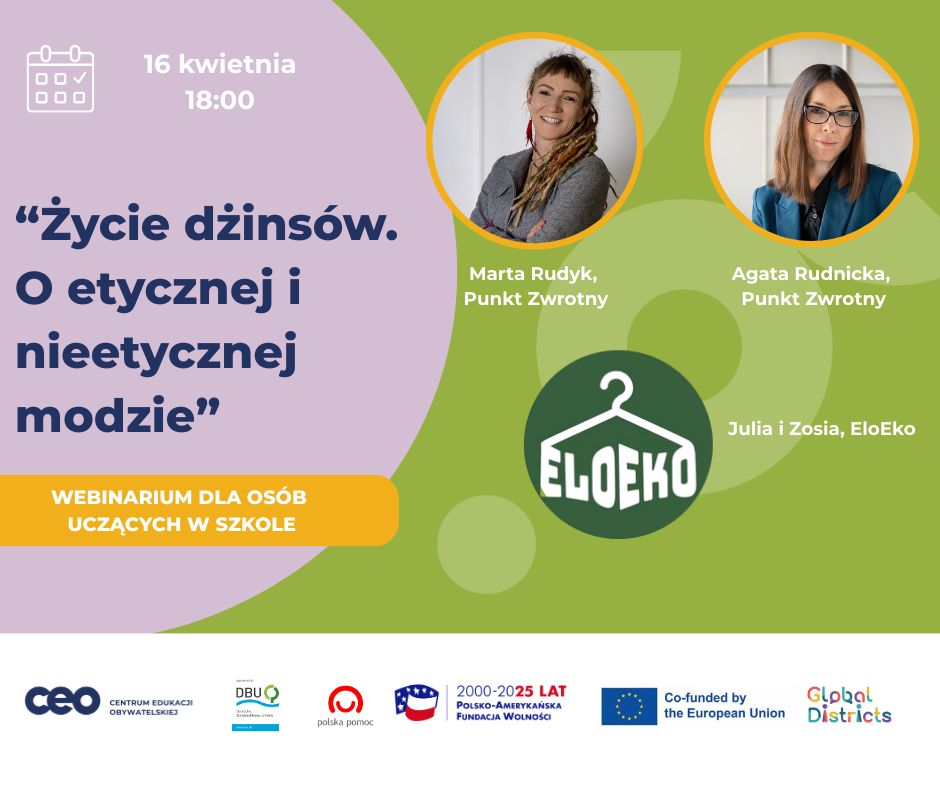
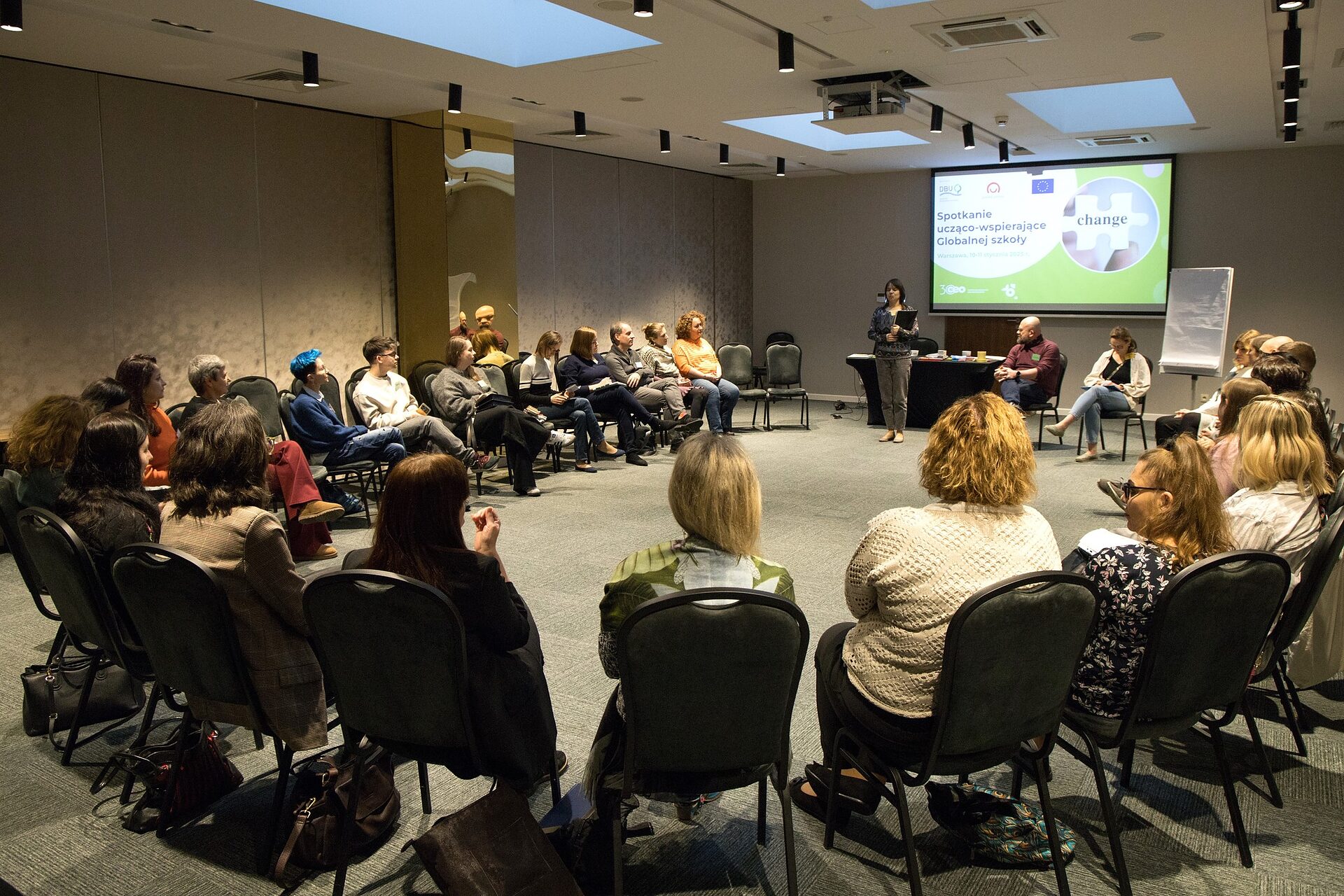
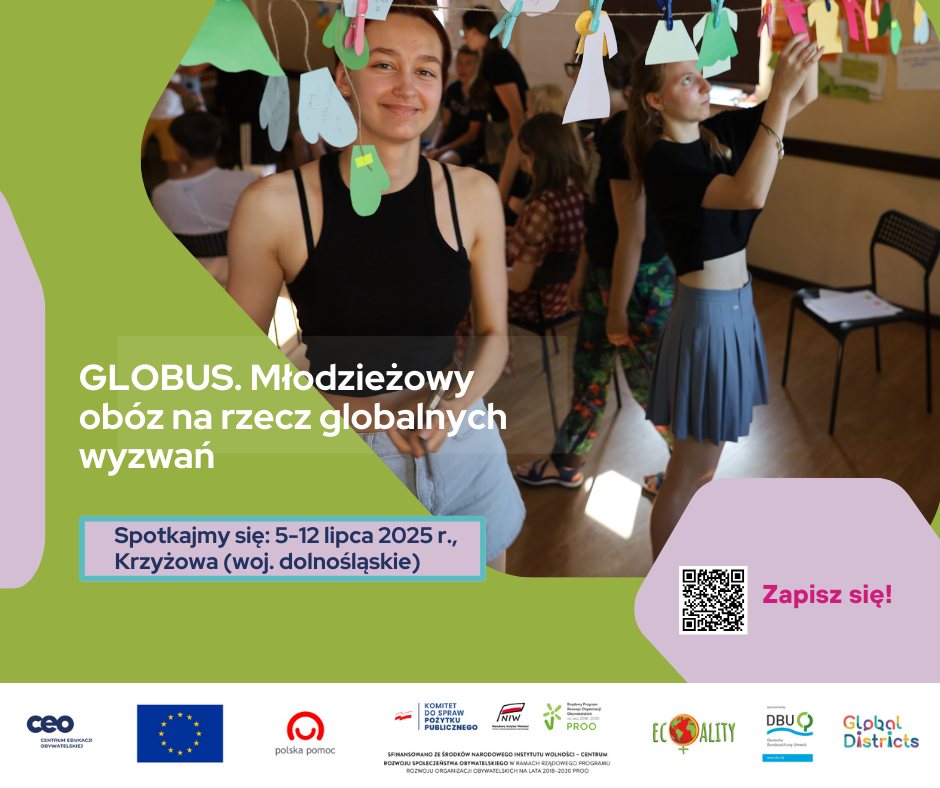
Funding topic 1: Sustainability communication, education and evaluation
Project implementation:
- German Society for Environmental Education e. V.
- Fundacja Centrum Edukacji Obywatelskiej/Center for Citizenship Education, Warszawa, Poland
Places of activity: Germany and Poland
Funding period: December 2022 to July 2025
Project costs: Total volume: 205,780 euros, funding from DBU: 124,029 euros
DBU-AZ: 38171
Status: 17.06.2025